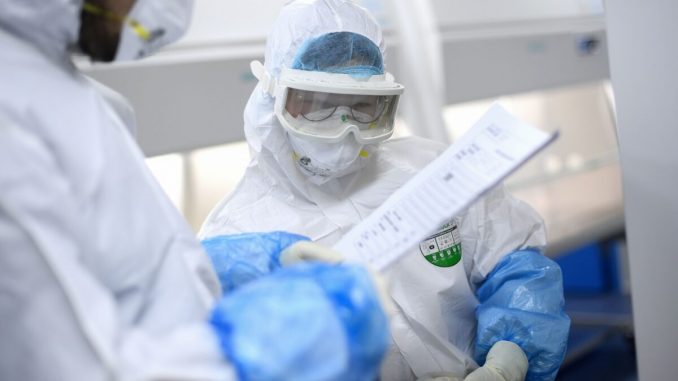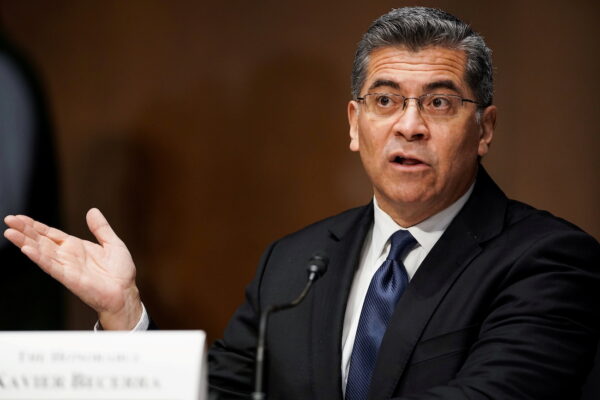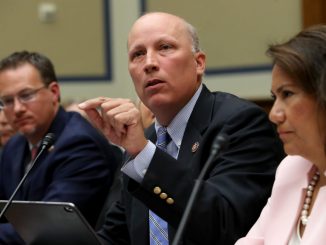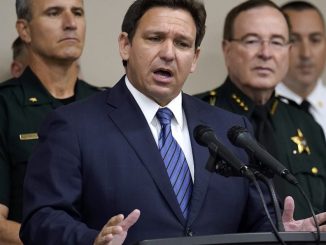
The United States on Tuesday urged the World Health Organization (WHO) to start a new investigation into the source of the CCP virus, amid growing calls to investigate whether the pandemic may have stemmed from a laboratory accident.
U.S. Health and Human Services Secretary Xavier Becerra, in remarks to the 74th World Health Assembly, a virtual event, called for the WHO to launch a second phase to the investigation.
“Phase 2 of the COVID origins study must be launched with terms of reference that are transparent, science-based, and give international experts the independence to fully assess the source of the virus and the early days of the outbreak,” he said.

Becerra did not mention China or Wuhan directly, where the first known human cases of COVID-19 emerged in December 2019.
The comments come after the Wall Street Journal reported on May 23 that three researchers at the Wuhan Institute of Virology were hospitalized in November 2019 with symptoms consistent with seasonal flu and COVID-19, the disease the CCP (Chinese Communist Party) virus causes. The newspaper cited unnamed U.S. government sources familiar with a previously undisclosed U.S. intelligence report.
White House press secretary Jen Psaki, when asked about the matter on May 24, said that the Biden administration has “repeatedly called for the WHO to support an expert-driven evaluation of the pandemic’s origins that is free from interference or politicization.”
“Now, there were phase one results that came through. We were not—during that first phase of the investigation, there was not access to data, there was not information provided. And now we’re hopeful that WHO can move into a more transparent, independent phase two investigation,” Psaki added.
On Tuesday, she told reporters, “We need access to the information that the Chinese government has in order to make a determination through the international bodies that would do this investigation. And that’s something we’ve called for many, many times. And we’ve pressed, with our international partners for the WHO to support an expert-driven evaluation of the pandemic’s origins. We would certainly participate in that with all of our research—resources from the United States.
“But given it was an international pandemic … we’re going to do that in coordination with our international partners, continue to press the Chinese to release that data and information and play a constructive role in the second phase of the investigation.”
The WHO said in a report in March that the possibility that the CCP virus may have escaped a laboratory was “an extremely unlikely pathway.” The report, written jointly with Chinese scientists, also said that the CCP virus likely spread via an animal.
The report was a culmination of the UN agency’s joint investigation with Chinese scientists into the origins of the CCP virus in January and February of this year. Critics have said that the WHO investigation may lack transparency and was not independent from the Chinese communist regime, which played a significant role in the CCP virus origins probe.
In May, there have been multiple calls to further investigate the origins of the CCP virus, including from international scientists, the UK government, and U.S. House Republican leaders, with an emphasis on investigating the laboratory leak theory.
The United States, the European Union, and more than a dozen other nations have also previously raised concerns about the WHO study, pointing to the report’s significant delay and China’s refusal to share crucial raw data.
Anthony Fauci, infectious disease expert and head of the U.S. National Institute of Allergy and Infectious Diseases, said in early May that he is “not convinced” that the CCP virus pandemic came about naturally and that the possibility “certainly exists” that it may have been a result of a laboratory accident.
Scott Gottlieb, former head of the Food and Drug Administration (FDA), told CNBC on Monday that growing circumstantial evidence point toward a possible laboratory origin, pointing to reports of the researchers at the Wuhan lab having fallen ill in November 2019.
Rochelle Walensky, director of the Centers for Disease Control and Prevention, said at a Senate hearing last week that it “certainly” was “one possibility” that the CCP virus pandemic may have been a result of a lab incident. But she added that most coronaviruses “generally come from an animal origin.”
A WHO spokesman, Tarik Jasarevic, asking about a follow-up mission, told Reuters on Monday that the agency was reviewing the recommendations from the WHO report at the technical level.
“The technical teams will prepare a proposal for the next studies that will need to be carried out, and will present that to the Director-General for his consideration,” he said, referring to WHO director-general Tedros Adhanom Ghebreyesus.
Jasarevic, noting Tedros’s remarks on March 30, said that further studies would be needed in a range of areas, including on the early detection of cases and clusters, the potential roles of animal markets, transmission via the food chain, and the laboratory incident hypothesis.
Eva Fu and Reuters contributed to this report.






Be the first to comment